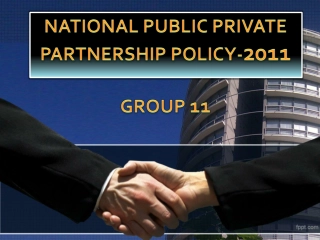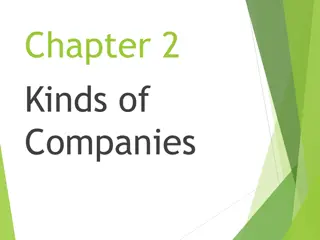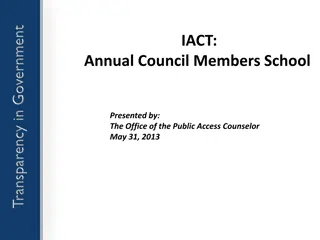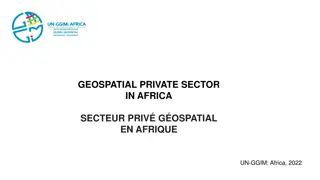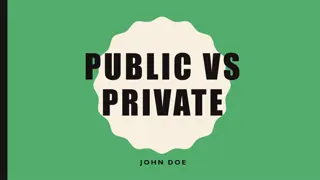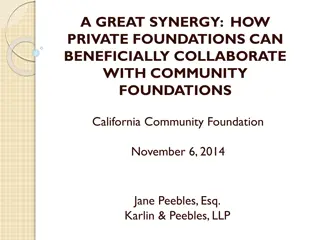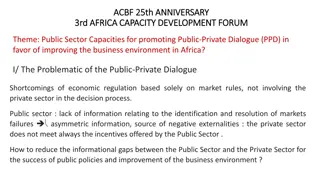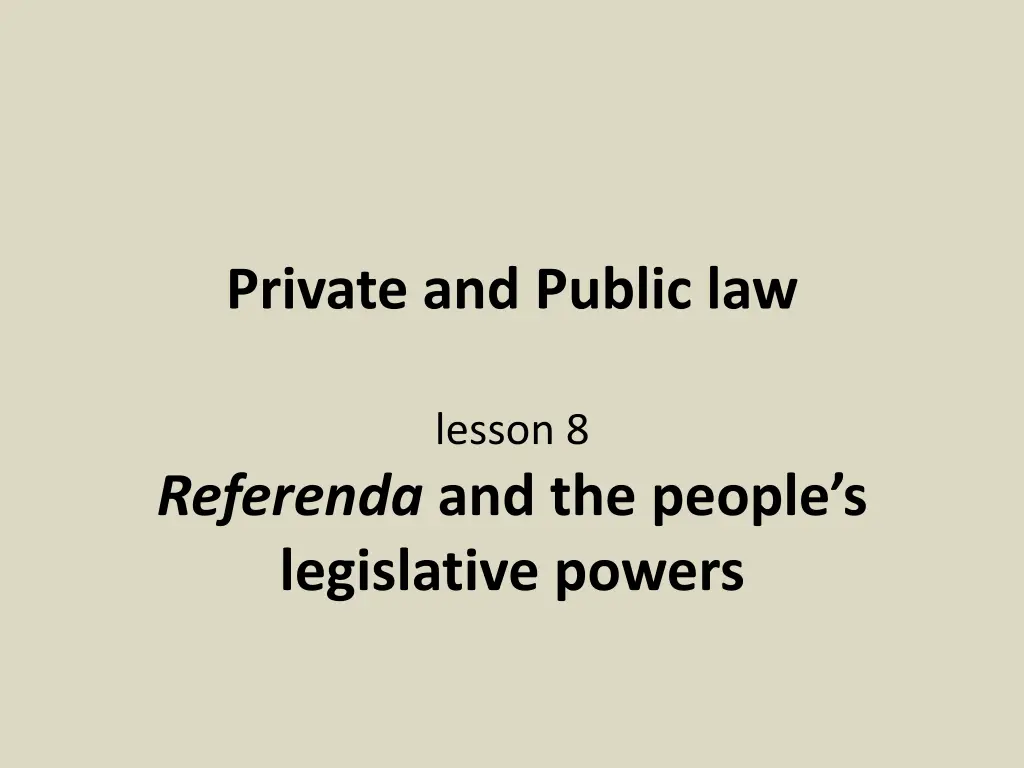
Referenda and People's Legislative Powers
Explore the concept of referenda and the people's legislative powers in private and public law. Learn about the right of initiative and the process of repealing laws through referenda, as outlined in the constitution. Discover the criteria and regulations surrounding the repealing referendum, including the eligibility of citizens to participate and the limitations on admissible subjects. Dive into the debate on whether voting in a referendum is a right or a duty, and understand the items excluded from the referendum process.
Download Presentation

Please find below an Image/Link to download the presentation.
The content on the website is provided AS IS for your information and personal use only. It may not be sold, licensed, or shared on other websites without obtaining consent from the author. If you encounter any issues during the download, it is possible that the publisher has removed the file from their server.
You are allowed to download the files provided on this website for personal or commercial use, subject to the condition that they are used lawfully. All files are the property of their respective owners.
The content on the website is provided AS IS for your information and personal use only. It may not be sold, licensed, or shared on other websites without obtaining consent from the author.
E N D
Presentation Transcript
Private and Public law lesson 8 Referenda and the people s legislative powers
- Referendum repealing an existing law constitutional referendum - Right of initiative to promote a project of law
The repealing referendum _________________________________ - Art. 75 of the Constitution - Law of 25 May 1970, no. 352
The repealing referendum _________________________________ - 500,000 citizens / 5 members of a Regional Parliament (Consigli Regionali) must promote the referendum - The President of the Republic must formally open the referendum - The referendum is aimed at repealing a law or an act assimilated to ordinary laws
The repealing referendum _________________________________ Art. 75 of the Constitution: A referendum is not admissible in respect of tax, budget, amnesty and pardon, as well as on the authorization or ratification of international treaties. All citizens eligible to vote for the House of Representatives have the right to participate in referenda. The referendum is approved if the majority of voting rights have voted and a majority of votes validly cast has been reached. The law shall regulate referendums in detail.
The repealing referendum _________________________________ - Referendum: is voting a right or a duty? Conflicting opinions
The repealing referendum _________________________________ Art. 75 of the Constitution: A referendum is not admissible in respect of tax, budget, amnesty and pardon, as well as on the authorization or ratification of international treaties. Is the list exhaustive or on a mere example basis?
Items to be excluded: _________________________________ - Laws amending the Constitution - Constitutional laws - Law-decrees - Laws delegating the Government to act - Laws by which the Parliament approves the Regions By- laws - Planning laws - Laws implementing the Constitution - Laws impacting on fundamental freedoms - Framework-laws adopted by the Parliament (joint competences with Regions, pursuant to Art. 117 of the Constitution)
The repealing referendum _________________________________ According to the Constitutional Court, the following items should be also excluded: - proposals regarding Laws which are bound by the Constitution (which could not be otherwise implemented) - unclear, confused, cryptic, illogical, contradictory or inconsistent proposals
The repealing referendum: procedural rules _________________________________ - no petition for referendum may be filed during the year before the expiry of the Parliamentary term - no petition for referendum may be filed during the six month-period following the formal start of the elections ( convocazione dei comizi elettorali )
The repealing referendum: procedural rules _________________________________ - petitions for referendum must be filed with the Supreme Court (Corte di Cassazione) between 1 January and 30 September of any year and no later than 3 months of the date when the sheets were sealed and certified - the Supreme Court officers check that all formal and procedural requirements were met. Promoters may be required to intervene and to provide clarifications / information; promoters may voluntary file deeds supplementing the petition. The Court fixes the title
The repealing referendum: procedural rules _________________________________ - the referendum is opened by a Decree of the President of the Republic, upon resolution by the Government - the referendum date must be a Sunday between 15 April and 15 June - if the referendum is successful, the law is formally repealed by virtue of a decree issued by the President of the Republic (this confirms that referendum is a source of law)
The repealing referendum: procedural rules _________________________________ - The Decree of the President of the Republic enters into force the day after publication on the Official Gazette. However, the President may postpone the effective date to a later date (but no later than 60 days of publication on the Official Gazette)
The repealing referendum: procedural rules _________________________________ - If the referendum is unsuccessful, no further petition may be filed on the same subject for the following 5 years -what happens if the law is repealed during the referendum proceeding?
The repealing referendum: procedural rules _________________________________ - Is referendum binding on the political bodies? what happens if the Parliament ignores the outcomes of a referendum (typically, by approving laws in conflict with the referendum outcome)? Conflict between sources of law Petition to the Constitutional Court?
The referendum on strategic matters (referendum di indirizzo ) _________________________________ The Constitutional Law no. 2/1989, promoting a referendum on the approach to be adopted with respect to the EC s evolution towards the Union Ritenete voi che si debba procedere alla trasformazione delle Comunit europee in una effettiva Unione, dotata di un Governo responsabile di fronte al Parlamento, affidando allo stesso Parlamento europeo il mandato di redigere un progetto di Costituzione europea da sottoporre direttamente alla ratifica degli organi competenti degli Stati membri della Comunit ? - does it create a new kind of referendum? - would it be binding on the political bodies? If so, what would the Italian representatives position within the EU Parliament be?
The constitutional referendum (138 Const.) _________________________________ Once both Chambers of the Parliament approved a law amending the Constitution, within 3 months of the relevant publication date, the following subjects may promote a referendum (to confirm or reject the law): - - - 500,000 citizens 1/5 of members of a Chamber of the Parliament 5 Regional Parliaments (Consigli Regionali) However, if, upon the second reading, a 2/3 majority of members of both Chambers of the Parliament approves the law, there is no room for referendum.
The peoples right of legislative initiative _________________________________ - 50,000 citizens - a project of law must be drafted, article by article - a report must be attached, highlighting the relevant aims and explaining the articles of the law - the project of law must be submitted to the President of either Chamber of the Parliament

